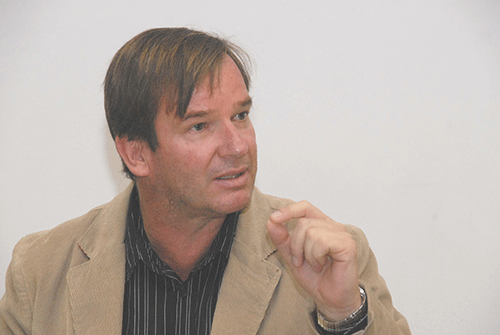Herbert Jauch
Last week provided fascinating viewing for all those interested in South African politics. In particular, the drastic decline in electoral support for the ruling African National Congress and the resultant need to form a coalition to govern present a new and very challenging scenario for the ruling party. Some have predicted a similar trend in Namibia’s elections later this year, but this is not a foregone conclusion.
In general, South Africa’s elections seem to have been well-managed, and the constant release of election results as constituencies were counted added to a sense of transparency throughout the counting period. The Independent Electoral Commission (IEC) also provided regular updates and responded to queries, further enhancing the credibility of the process. In the end, the arguably biggest loser of the elections, the ANC, as well as most other parties fully accepted the election results as the will of the voters.
This bodes well for future elections despite some other parties, most notably the newly-formed Mkhonto we Sizwe (MK) Party of Jacob Zuma, claiming irregularities.
Declining participation
Disillusionment with electoral politics and the unfulfilled promises of political parties was clearly visible in the South African elections as voter participation dropped to 58.6%, with only around 16 million people participating out of around 27 million registered voters.
This is far below the 90% participation rate of the early post-apartheid elections.
Liberation movement dividend
Since 1994, the ANC had enjoyed stable, although steadily declining electoral majorities. Already in the last election of 2019, the ANC had to admit that the country was facing severe challenges such as huge unemployment, massive levels of inequality and poverty, poor service, delivery and corruption.
At the time, the party asked the South Africa voters to give it another chance – which they did. This is no longer the case now as the ANC dropped from 57% to just 40% of the national vote. The dividend from its leading role in the liberation struggle no longer attracts voters who seek solutions to the very concrete social and economic challenges they are facing today.
This is likely to be a factor in Namibia’s upcoming election as well. There is a new generation of younger voters who not only form the majority of the electorate but are likely to look for parties which can provide solutions to their burning problems of unemployment and poverty. Unless political parties can convince these young people to vote and offerthem viable solutions, the parties are unlikely to reach majority support.
Identity/ethnic politics
However, the South African elections have also shown that electoral choices are not necessarily based on party programmes or ideological positions. The voting patterns have shown a strong element of identity politics and ethnic voting patterns. While some parties like the ANC or the Economic Freedom Fighters (EFF) draw support across different groups, other parties have a base among a specific ethnic group.
This seems to be the case, for example with the newly-formed MK Party, with its support base iN KwaZulu-Natal. Zuma’s party managed to rally this support base and took a large chunk of the votes that might otherwise have gone to the ANC, The MK Party thus managed to inflict severe losses on the ANC and forced it into a new reality of having to look for coalition partners to obtain a majority in parliament.
Break-aways
The dynamics in Namibia could be different in this regard. Swapo has already experienced several break-aways over the years. The first one was the Congress of Democrats (CoD), followed by the Rally for Democracyand Progress (RDP).
Both parties were formed by former Swapo leaders (Ben Ulenga and Hidipo Hamutenya, respectively), who decided to start their own parties, but were unable to draw a significant number of voters away from the ruling party. The most recent break-away was the Landless People’s Movement (LPM), led by former Swapo Party Youth League leaders Bernadus Swartbooi and Henny Seibeb.
At regional and local level, the LPM made some significant inroads in southern Namibia and the upcoming election will show if the LPM can consolidate this support and expand its base into other regions. In addition, Dr Panduleni Ithula’s Independent Patriots for Change (IPC) will contest at national level for the first time and this new party faces a stern test as it will have to grow beyond support from urban middle class areas. A final aspect worth mentioning is the insignificant role of small parties and independent candidates in the South African elections. The many small parties with a support base of below 2% essentially constituted a wasted vote as they are in no position to influence national politics and developments. Likewise, the independent candidates failed to make any inroads. This could be the case in Namibia too as most Namibians look for parties that can provide solutions to the burning social and economic problems which they are confronted with every day. South Africa’s election results send a message that the time for automatic majorities is coming to an end. A mandate to govern has to be earned.
* Herbert Jauch is a labour researcher and social justice activist.


